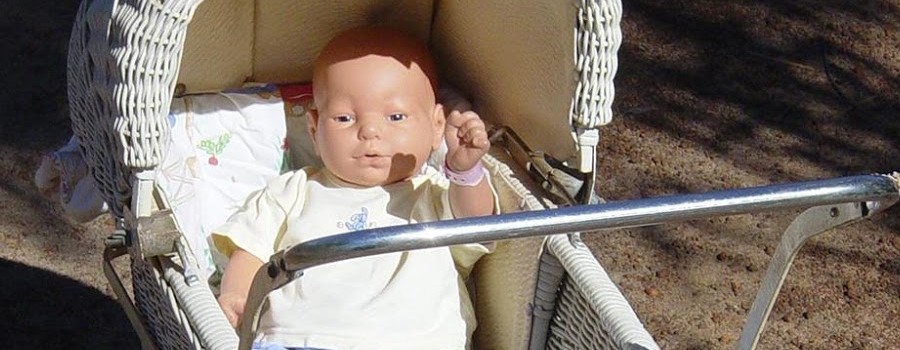Do you remember in high school, where there were those child study classes that made you look after a fake baby? The baby cried into the late hours of the night, needed to be fed and looked after, all typical baby stuff. I remember my friend having to take hers into work one night because her family refused to look after it, and she had to take chicken shop orders over the screams of an electronic baby.
Well, all that suffering was for naught! Apparently the screaming wasn’t a deterrent for most people that took the class, and in fact girls that had an electronic baby were more likely to become pregnant.
The study into the massive sex-ed fail was published in the Lancet and studied 3000 high school girls from Western Australia aged 15 to 13 and followed them until they were 20. The study found that:
“17% of girls who used the dolls had become pregnant by the age of 20, compared with 11% of those who did not.” Source

How interesting that that a program that was designed to decrease the rate of teenage pregnancy in Australia has done the exact opposite. Sally Brinkman, who’s the lead author on the study has a few ideas as to why this might be the case.
“Some became extremely attached to their fake babies,” Dr Brinkman said. “They got a lot of attention from family and friends while they had the baby, and then there was the other extreme of some students who found it difficult and did not engage at all.”
“Even the most well-intentioned programs can have unexpected consequences,” said Brinkman.
Although the program is used in 89 countries around the world and is supposed to encourage teenage girls to think seriously about contraception and the potential consequences that it may have (also known as raising a child), it seems that the program made some of the girls realise that they do want a child to love and care for. They took steps to make that happen after finishing the course. Good for them!

